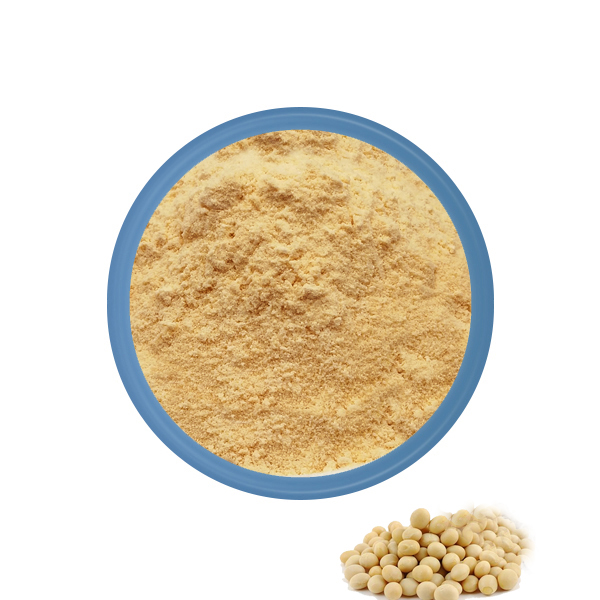Is soy lecithin bad for you
NON-GMO Soy lecithin is a generally safe food additive. Because it's present in such small amounts in food, it's unlikely to be harmful. Though evidence supporting soy lecithin as a supplement is somewhat limited, the evidence backing choline could steer people toward this food additive in supplement form.
What is Soy Lecithin?
Soy lecithin, a by-product of soybean oil processing, is a mixture of phospholipids. It's used widely in food manufacturing due to its emulsifying properties. This means it can help mix fat and water components, which typically don't blend well. You'll find it in a vast range of products, from baked goods and chocolates to margarine and salad dressings.

Is Soy Lecithin Gluten Free
As the concern for gluten transparency increases when it comes to food and food labeling, many may wonder whether lecithin (specifically soy lecithin) is gluten-free. The short answer is yes, soy lecithin is gluten-free.
Is Soy Lecithin Vegan
Yes, soy lecithin is typically considered vegan. It is derived from soybeans, which are plant-based and do not involve the use of animal products or byproducts in its typical production process.
However, vegans might also want to consider other factors, such as how soybeans are grown and whether they are genetically modified. Many soybeans are grown using intensive farming methods that can be harmful to the environment, and a significant proportion of soybeans are genetically modified. If these are concerns for you, look for soy lecithin that is labeled as organic or Non-GMO.
Additionally, while the source material is plant-based, some strict vegans might have concerns about potential cross-contamination if the soy lecithin is produced in facilities that also process animal products. If this is a concern, you may want to research the brand or contact the manufacturer for more information.
Is Soy Lecithin A Dairy Product
To be clear, soy lecithin is not derived from dairy, and it doesn't contain milk. You can't derive soy anything from milk, or from any other food for that matter.
Is Soy Lecithin Bad For Males?
There's a common misconception that soy products, including soy lecithin, can have negative effects on men's health. This concern primarily stems from the presence of isoflavones, which are plant compounds that can mimic human estrogen. However, it is essential to understand the difference between the effects of isoflavones and soy lecithin on the male body.
Soy isoflavones have a similar structure to estrogen, the female sex hormone, which has led some to worry about the potential for soy products to interfere with male hormone levels. There have been fears that consuming soy could lead to lower testosterone levels, reduced fertility, or even 'feminizing' effects in men.
Not have adverse effects on men's health. Many studies have found no significant impact on testosterone levels or other markers of male reproductive health from consuming soy products. It's important to note that the estrogen-like effects of soy isoflavones are much weaker than human estrogen and do not function in the same way in the body.
Is Soy Lecithin a Hormone Disruptor?
Soy lecithin is a common ingredient in many foods and supplements. It's used as an emulsifier, or lubricant, and is derived from soybeans.
As of my last training cut-off in September 2021, there is no substantial scientific evidence to suggest that soy lecithin acts as a hormone disruptor in humans. The concern about soy products generally revolves around their phytoestrogen content - compounds that can mimic the hormone estrogen in the body. However, soy lecithin contains only trace amounts of these phytoestrogens, much less than whole soybeans or soy protein isolates.
You May Already Be Taking It
Soy lecithin has established itself as a ubiquitous ingredient in a wide variety of food and health products due to its emulsifying properties. This implies that you could already be consuming soy lecithin without even knowing it. Let's explore the most common products where this compound is found.
Common Products Containing Soy Lecithin:
1. Processed Foods: Soy lecithin is frequently used as an emulsifier in processed foods. It's found in products such as margarine, chocolate, ice cream, and baked goods. Its role is to prevent the separation of fat and water, ensuring a consistent texture.
2. Dietary Supplements: Many dietary supplements use soy lecithin as an ingredient. It is often used in these products for its potential health benefits, such as supporting heart and brain health.
3. Infant Formula: Soy lecithin is frequently used in infant formula as an emulsifier. It helps fats blend with other ingredients, ensuring the formula remains well-mixed.
4. Cosmetics and Skin Care Products: Soy lecithin is also a common ingredient in various cosmetics and skincare products. It acts as a moisturizer and stabilizer, ensuring the product's longevity and effectiveness.

You May Take It If You Have High Cholesterol
Soy lecithin is sometimes used as a supplement for various health conditions, including high cholesterol. The lecithin component of soy lecithin is a type of fat called a phospholipid, which has been shown in some studies to have beneficial effects on cholesterol levels.
Lecithin may help lower levels of low-density lipoprotein (LDL, or "bad") cholesterol and increase levels of high-density lipoprotein (HDL, or "good") cholesterol, although the scientific evidence supporting these effects is not entirely conclusive as of my last training data in September 2021.
Do You Need More Choline?
Choline is an essential nutrient that your body needs for several functions. It's used to build cell membranes and produce acetylcholine, a neurotransmitter that plays a role in mood, memory, muscle control, and other functions.
The required amount of choline varies depending on your age, sex, and life stage. For example, the recommended daily intake for adult men is 550 mg, for adult women it's 425 mg, and it's higher for pregnant or breastfeeding women due to the needs of the developing fetus or infant.
Even If You're Allergic To Soy
Soy lecithin is derived from soybeans, but it's a different compound than the proteins typically responsible for soy allergies. During the process of extracting lecithin from soy, most of the allergenic proteins are removed, making it less likely to provoke an allergic reaction compared to whole soy or soy protein.
Although soy lecithin is derived from soy, most of the allergens are removed in the manufacturing process.
According to the University of Nebraska, most allergists don’t caution people who are allergic to soy against soy lecithin consumption because the risk of reaction is so small. Still, some people with extreme soy allergies may react to it, so those who are highly sensitive are cautioned against it.
How Is Soy Lecithin Made
Soy lecithin is derived from soybeans through a multi-step process:
Oil Extraction: The first step is extracting oil from the soybeans. This is typically done using a solvent, such as hexane, that can separate the oil from the other components of the soybeans.
Degumming: After the oil is extracted, it undergoes a process called degumming. This involves adding water to the oil, which causes the lecithin to separate out due to its water-soluble nature. The lecithin forms a gum-like substance that can be separated from the oil.
Drying: The separated lecithin is then dried and occasionally bleached to improve its color.
Further processing: Depending on the desired end product, the lecithin may undergo further processing. For example, it may be mixed with other substances to create a certain consistency, or it may be modified to change its performance characteristics.
The end result is a versatile ingredient that's used as an emulsifier (helping to mix oil- and water-based ingredients), lubricant, and stabilizer in a wide variety of food and non-food products.
If you want to buy bulk soy lecithin powder Contact us today to learn more, request a sample, or place an order.
References:https://www.webmd.com/vitamins/ai/ingredientmono-966/lecithin
https://www.healthline.com/health/food-nutrition/is-soy-lecithin-good-or-bad-for-me
https://www.vinmec.com/en/news/health-news/nutrition/is-soy-lecithin-good/
https://draxe.com/nutrition/what-is-soy-lecithin/
Send Inquiry
Related Industry Knowledge
- The Latest Research on Glutathione Benefits
- Beetroot Red: Your Guide to Vibrant Health
- Mind and Body Benefits of Lions Mane Powder
- Benefits of Organic Vitamin C Powder for Skin
- Coq10: Versatile Benefits For Women
- MSM Powder for Skin Benefits
- Magnesium Complex Supplement: Protein and Glycinate
- Exploring the Power of Cocoa Shell Extract: A Natural Wonder with Unique Benefits
- Does oat protein build muscle?
- Is chlorophyll healthy?


